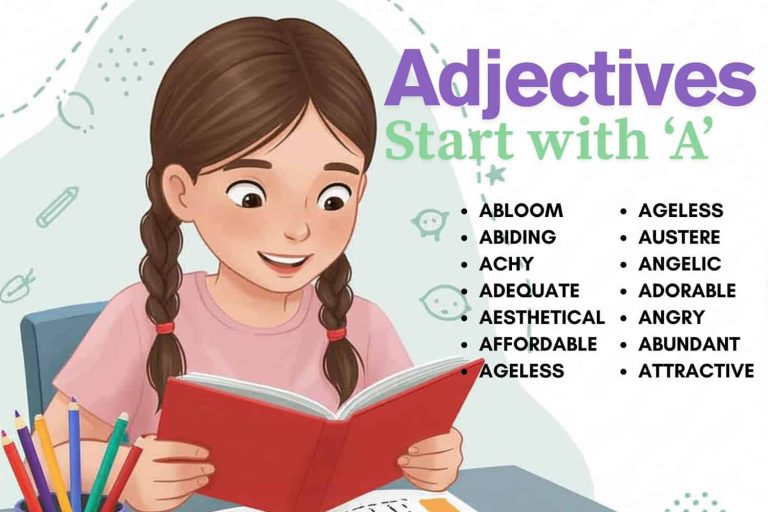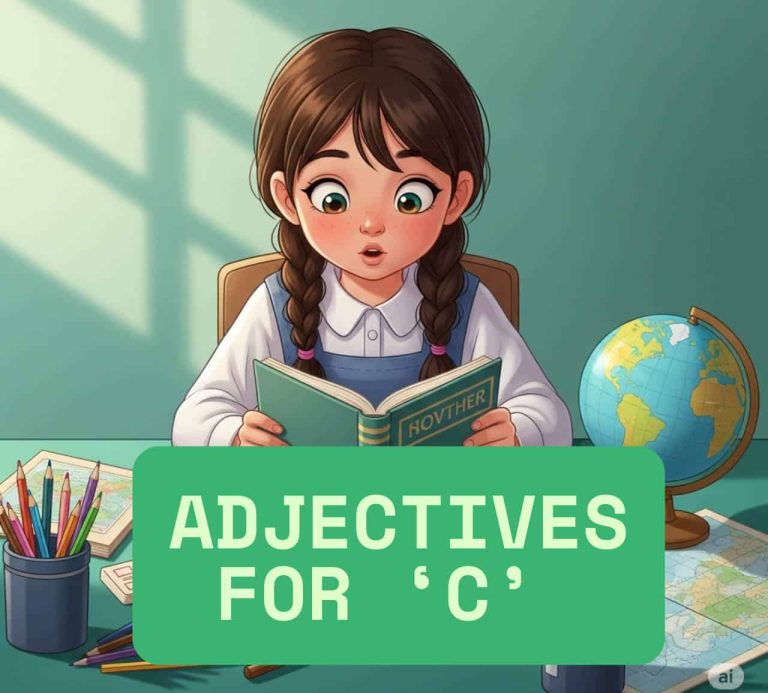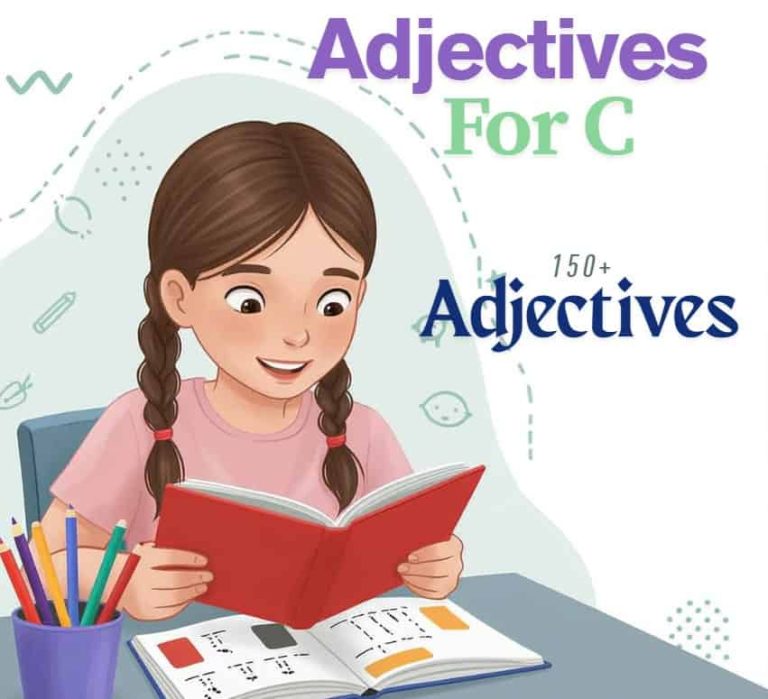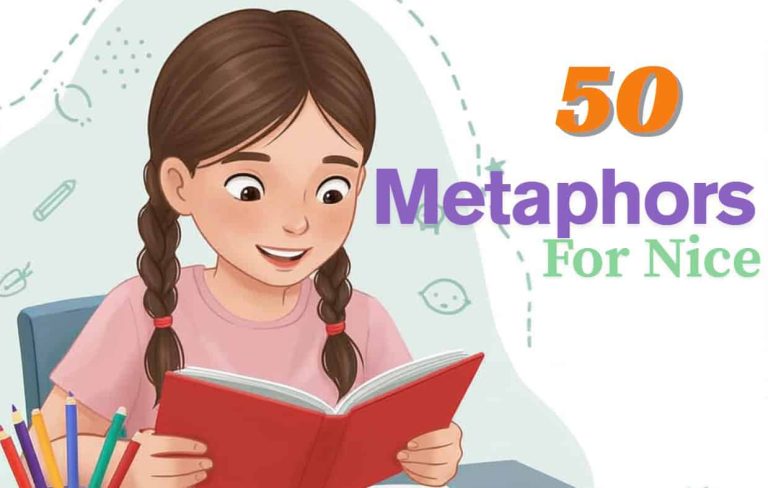101 + Adjectives That Start With ‘T’ (With Definitions & Examples)
Adjectives are the backbone of descriptive language, adding color and detail to our sentences. Mastering adjectives, especially those starting with the letter ‘T,’ can significantly enhance your writing and speaking skills.
Are you looking for a comprehensive exploration of adjectives that begin with ‘T,’ covering their definitions, usage, and practical applications? Whether you’re an English language learner or a seasoned writer, this guide will equip you with the knowledge and tools to use ‘T’ adjectives effectively and confidently.
This article is designed for learners of all levels, from beginners seeking to expand their vocabulary to advanced students aiming to refine their nuanced understanding of adjective usage.
By the end of this guide, you will have a solid grasp of a wide range of ‘T’ adjectives, their meanings, and how to incorporate them seamlessly into your communication.
Definition of Adjectives of “T”
Adjectives are words that describe or modify nouns and pronouns. They provide more information about a person, place, thing, or idea by explaining qualities such as size, color, shape, emotion, and more. Adjectives of T are simply adjectives that begin with the letter T. These words are commonly used in everyday communication to add detail and expression to sentences.
Adjectives starting with T can describe a wide range of characteristics. For example, tall describes height, tiny refers to size, tired indicates a physical state, and trustworthy defines personality. These adjectives help us paint a clearer picture in the reader’s or listener’s mind. Instead of saying “a man,” you might say “a tall man” or “a timid man,” giving more depth to the description.
Many adjectives of T are also useful for storytelling, writing, and formal communication. Words like terrific, thoughtful, tense, or thrilling help express emotion, atmosphere, or tone more vividly. Learning and using these adjectives effectively enhances both writing and speaking skills.
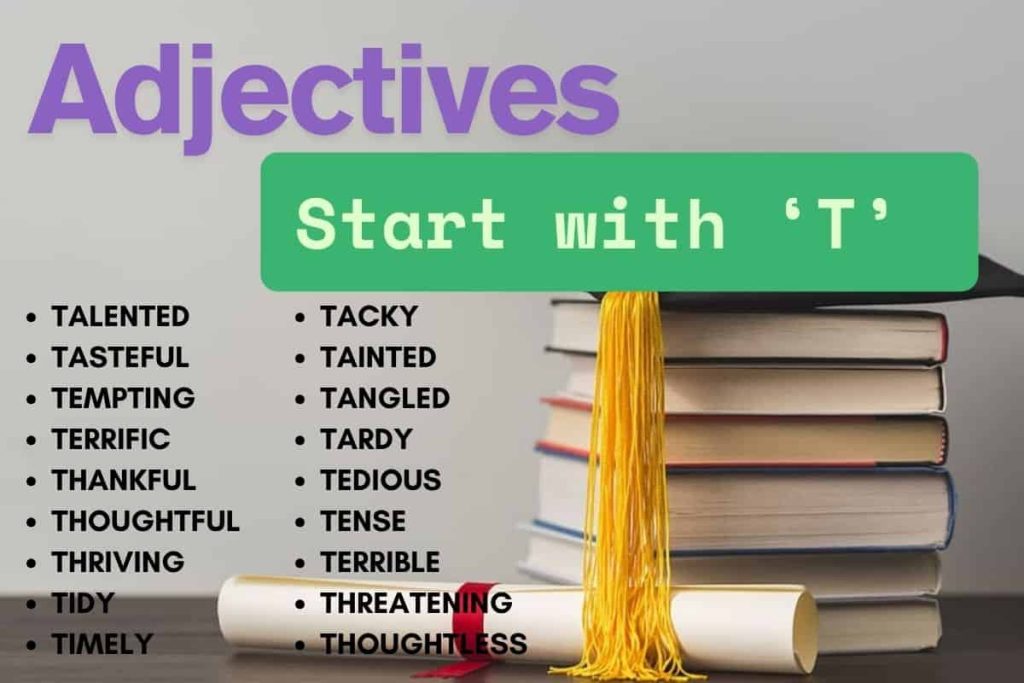
Examples of ‘T’ Adjectives
This section provides a comprehensive list of adjectives that start with the letter ‘T,’ categorized by their general connotation: positive, negative, or neutral. Understanding these nuances will help you choose the most appropriate adjective for your specific context.
Positive ‘T’ Adjectives
Positive adjectives convey favorable qualities or characteristics. They are used to describe something or someone in a positive light, highlighting their strengths and virtues.
Here’s a table showcasing positive adjectives starting with ‘T,’ along with example sentences:
| Adjective | Definition | Example Sentence |
|---|---|---|
| Talented | Having a natural aptitude or skill for something. | She is a talented musician who can play multiple instruments. |
| Tasteful | Having or showing good aesthetic judgment or appropriate behavior. | The decor in their home is always so tasteful and elegant. |
| Tempting | Attractive or appealing; inviting. | The aroma of freshly baked bread was incredibly tempting. |
| Terrific | Excellent; wonderful. | We had a terrific time at the amusement park. |
| Thankful | Grateful; appreciative. | I am thankful for all the support my family has given me. |
| Thoughtful | Considerate of others; showing care and attention. | He is a thoughtful friend who always remembers my birthday. |
| Thriving | Flourishing; growing vigorously. | The business is thriving under the new management. |
| Tidy | Neat and organized. | She keeps her desk very tidy. |
| Timely | Happening at the right time; punctual. | His timely intervention prevented a disaster. |
| Tolerant | Showing acceptance and respect for others’ opinions and beliefs. | A tolerant society embraces diversity. |
| Top-notch | Excellent; of the highest quality. | The restaurant provides top-notch service. |
| Touchable | Capable of being touched; tangible. | The soft fur of the kitten was incredibly touchable. |
| Triumphant | Having won a battle or contest; victorious. | The team returned home, triumphant after their championship win. |
| Trusting | Willing to believe in the honesty and reliability of others. | She has a trusting nature, always seeing the best in people. |
| Truthful | Honest and sincere; telling the truth. | A truthful account of the events is essential for justice. |
| Tuned | Adjusted to a specific frequency or standard; in harmony. | The orchestra played with a beautifully tuned sound. |
| Tremendous | Extremely large or great; excellent. | The support from the community was tremendous. |
| Transcendent | Beyond or above the range of normal or merely physical human experience. | The music had a transcendent quality that moved everyone. |
| Transformative | Causing a significant change in someone or something. | Her experience abroad was transformative, changing her perspective on life. |
| Treasured | Highly valued or cherished. | These family heirlooms are treasured possessions. |
| Teachable | Willing to learn and be instructed. | He is a teachable student, always eager to improve. |
| Tenacious | Tending to keep a firm hold of something; clinging or adhering closely. | The tenacious climber reached the summit despite the difficult conditions. |
| Tested | Having been subjected to a test. | The tested product passed all safety standards. |
Negative ‘T’ Adjectives
Negative adjectives, conversely, convey unfavorable qualities or characteristics. They are used to describe something or someone in a negative light, highlighting their weaknesses and flaws.
Here’s a table showcasing negative adjectives starting with ‘T,’ along with example sentences:
| Adjective | Definition | Example Sentence |
|---|---|---|
| Tacky | Showing poor taste and style. | The decorations were tacky and over the top. |
| Tainted | Spoiled or contaminated. | The water supply was tainted with chemicals. |
| Tangled | Twisted together in a confused mass. | Her hair was tangled after the windy day. |
| Tardy | Late; delayed. | He was tardy for the important meeting. |
| Tedious | Monotonous and boring. | The task was tedious and took hours to complete. |
| Tense | Strained or nervous. | The atmosphere in the room was tense. |
| Terrible | Extremely bad or unpleasant. | The weather was terrible, with heavy rain and strong winds. |
| Threatening | Expressing or suggesting a threat. | His tone was threatening, and I felt uneasy. |
| Thoughtless | Lacking consideration for others. | It was thoughtless of him to forget her birthday. |
| Tiresome | Causing fatigue or annoyance. | The journey was long and tiresome. |
| Torn | Damaged by being ripped or pulled apart. | The old book had a torn cover. |
| Tormented | Experiencing severe mental or physical suffering. | The prisoner was tormented by his captors. |
| Tragic | Extremely sad or unfortunate. | The accident was a tragic loss of life. |
| Treacherous | Dangerous and unreliable. | The mountain path was treacherous. |
| Troubled | Experiencing problems or difficulties. | He seemed like a troubled young man. |
| Tumultuous | Marked by violent or overwhelming turbulence or upheaval. | The country experienced a tumultuous period of political unrest. |
| Turbulent | Characterized by conflict, disorder, or confusion; not controlled or calm. | The flight was turbulent due to the storm. |
| Tyrannical | Exercising power in a cruel or oppressive way. | The dictator ruled with a tyrannical hand. |
| Trivial | Of little value or importance. | The argument was over a trivial matter. |
| Tiresome | Causing one to feel tired or bored. | The lecture was long and tiresome. |
| Threatened | Feeling or appearing likely to be harmed or endangered. | The species is now threatened due to habitat loss. |
| Terrified | Extremely frightened. | She was terrified by the sudden noise. |
| Twisted | Distorted or contorted in shape or meaning. | He had a twisted sense of humor. |
Neutral ‘T’ Adjectives
Neutral adjectives, as the name suggests, do not carry a strong positive or negative connotation. They are used to describe something or someone objectively, without expressing a particular judgment or opinion.
Here’s a table showcasing neutral adjectives starting with ‘T,’ along with example sentences:
TrueIn accordance with fact or reality.The story is true.
| Adjective | Definition | Example Sentence |
|---|---|---|
| Technical | Relating to a particular subject, art, or craft, or its techniques. | The manual provides technical information about the product. |
| Temporary | Lasting for only a limited period of time; not permanent. | This is only a temporary solution to the problem. |
| Theoretical | Concerned with or based on theory rather than practice. | The discussion was highly theoretical and abstract. |
| Thick | Having relatively great extent from one surface or side to the opposite. | The wall was very thick. |
| Thin | Having relatively small extent from one surface or side to the opposite. | The paper was very thin and fragile. |
| Third | Coming after the second in order or position. | He finished in third place in the race. |
| Thorough | Complete and detailed. | The investigation was very thorough. |
| Tight | Stretched or fitting closely. | The shirt was too tight around the collar. |
| Tiny | Very small. | The baby bird was tiny and helpless. |
| Tired | In need of rest or sleep. | I am feeling very tired after a long day. |
| Top | Situated at the highest point or part of something. | The view from the top of the mountain was breathtaking. |
| Total | Complete; whole. | The total cost of the project was estimated at $1 million. |
| Traditional | Existing in or as part of a tradition; long-established. | The ceremony followed traditional customs. |
| Transparent | Allowing light to pass through so that objects behind can be distinctly seen. | The glass was transparent. |
| Typical | Having the distinctive qualities of a particular type of person or thing. | This is a typical example of his work. |
| Tolerable | Able to be endured. | The pain was tolerable with medication. |
| Traveling | In the process of traveling. | The traveling salesman visited many cities. |
| Triangular | Having the shape of a triangle. | The garden had a triangular shape. |
| Tropical | Relating to or characteristic of the tropics. | We enjoyed the tropical climate on our vacation. |
| Twice | Two times. | He visited the museum twice this month. |
| Two-sided | Having two sides. | The coin is two-sided. |
| Textured | Having a discernible texture. | The fabric was heavily textured. |
Neutral ‘T’ adjectives are essential for providing objective descriptions and conveying factual information. They allow you to present a balanced and unbiased view of the subject matter.
Common Mistakes with Adjectives
One common mistake is using adjectives as adverbs. Adjectives modify nouns, while adverbs modify verbs, adjectives, or other adverbs.
For example, “He ran quick” is incorrect; the correct sentence is “He ran quickly,” where “quickly” is an adverb modifying the verb “ran.” Similarly, “She is a real good singer” is incorrect; the correct sentence is “She is a really good singer,” where “really” is an adverb modifying the adjective “good.”
Another common mistake is using the incorrect degree of comparison. Adjectives have three degrees of comparison: positive, comparative, and superlative.
The positive degree is the base form of the adjective (e.g., “tall”). The comparative degree is used to compare two things (e.g., “taller”).
The superlative degree is used to compare three or more things (e.g., “tallest”). When comparing two things, use the comparative form, and when comparing three or more things, use the superlative form.
For example, “She is the tallest of the two sisters” is incorrect; the correct sentence is “She is the taller of the two sisters.”
Misplacing adjectives can also lead to confusion. An adjective should be placed as close as possible to the noun it modifies to avoid ambiguity.
For example, “He saw a dog running down the street with a long tail” could be misinterpreted to mean that the street has a long tail. The correct sentence is “He saw a dog with a long tail running down the street.”
Here’s a table illustrating common adjective mistakes:
| Incorrect | Correct | Explanation |
|---|---|---|
| He ran quick. | He ran quickly. | Adjective used as an adverb. |
| She is a real good singer. | She is a really good singer. | Adjective used as an adverb. |
| She is the tallest of the two sisters. | She is the taller of the two sisters. | Incorrect degree of comparison. |
| He saw a dog running down the street with a long tail. | He saw a dog with a long tail running down the street. | Misplaced adjective. |
| The child is more happier today. | The child is happier today. | Double comparative. |
| This is the most unique experience. | This is a unique experience. | “Unique” is an absolute adjective and cannot be compared. |
Practice Exercises
Test your understanding of ‘T’ adjectives with these practice exercises. Choose the correct adjective to complete each sentence.
Exercise 1: Fill in the Blanks
| Question | Answer |
|---|---|
| 1. The ________ musician played a beautiful melody. (talented/tacky) | talented |
| 2. The ________ task took hours to complete. (tedious/terrific) | tedious |
| 3. I am ________ for all the support my family has given me. (thankful/threatening) | thankful |
| 4. The mountain path was ________. (treacherous/trusting) | treacherous |
| 5. He gave a ________ explanation of the situation. (thorough/thoughtless) | thorough |
| 6. The solution is only ________. (technical/temporary) | temporary |
| 7. The decorations were ________ and over the top. (tasteful/tacky) | tacky |
| 8. The species is now ________ due to habitat loss. (threatened/thriving) | threatened |
| 9. His ________ intervention prevented a disaster. (timely/tiresome) | timely |
| 10. The atmosphere in the room was ________. (tense/tidy) | tense |
Exercise 2: Identify the Adjective Type
Identify the type of adjective (descriptive, quantitative, demonstrative, possessive, interrogative) in each sentence.
| Question | Answer |
|---|---|
| 1. This book is very interesting. | Demonstrative |
| 2. She has many friends. | Quantitative |
| 3. What color is your car? | Interrogative |
| 4. My house is near the park. | Possessive |
| 5. The tall building is a landmark. | Descriptive |
| 6. Which way should we go? | Interrogative |
| 7. Their garden is beautiful. | Possessive |
| 8. Those flowers are blooming. | Demonstrative |
| 9. Few people attended the meeting. | Quantitative |
| 10. The tired traveler rested. | Descriptive |
Exercise 3: Correct the Mistakes
Identify and correct the mistakes in the following sentences.
| Question | Answer |
|---|---|
| 1. He is the most tallest boy in the class. | He is the tallest boy in the class. |
| 2. She sings real good. | She sings really well. |
| 3. This is a uniqueest experience. | This is a unique experience. |
| 4. The child is more happier today. | The child is happier today. |
| 5. He saw a cat running down the street with a furry tail. | He saw a cat with a furry tail running down the street. |
| 6. It was a cold, windy, terrible day. | It was a cold, windy, terrible day. (Correct – all coordinate adjectives) |
| 7. She bought a new, Italian car. | She bought a new Italian car. |
| 8. It was a big, brown, wooden, old table. | It was a big brown wooden old table. |
| 9. He is a kind, generous and thoughtful friend. | He is a kind, generous, and thoughtful friend. |
| 10. The movie was long and tediously. | The movie was long and tedious. |
Frequently Asked Questions (FAQ)
Here are some frequently asked questions about adjectives:
- What is the difference between an adjective and an adverb?An adjective modifies a noun or pronoun, while an adverb modifies a verb, adjective, or another adverb. Adjectives answer questions like “What kind?” or “Which one?”, while adverbs answer questions like “How?”, “When?”, “Where?”, or “To what extent?”
- What is the correct order of adjectives when using multiple adjectives?The general order of adjectives is: 1) Quantity or number, 2) Opinion, 3) Size, 4) Age, 5) Shape, 6) Color, 7) Origin, 8) Material, and 9) Purpose. However, this order is not always strictly adhered to, and it is important to consider what sounds most natural.
- What are coordinate adjectives?Coordinate adjectives are adjectives that independently modify the same noun and can be separated by commas. They can be identified by whether their order can be reversed or if “and” can be inserted between them without changing the meaning.
- What are absolute adjectives?Absolute adjectives describe qualities that are either present or absent and cannot be compared. Examples include “unique,” “perfect,” and “complete.” It is incorrect to use comparative or superlative forms with these adjectives.
- What are participial adjectives?Participial adjectives are adjectives formed from verbs. Present participles (ending in “-ing”) and past participles (often ending in “-ed” or “-en”) can function as adjectives.
- Can nouns be used as adjectives?Yes, nouns can sometimes be used as adjectives. This is called a noun adjunct or attributive noun. For example, in the phrase “computer science,” the noun “computer” is used as an adjective to modify the noun “science.”
- How can I improve my use of adjectives?Expand your vocabulary by reading widely and paying attention to the adjectives used by skilled writers. Practice using adjectives in your own writing and speaking, and ask for feedback from others. Pay attention to the nuances of adjective meaning and usage to choose the most appropriate adjective for each context.
- What are some common mistakes to avoid when using adjectives?Avoid using adjectives as adverbs, using the incorrect degree of comparison, misplacing adjectives, and using double comparatives or superlatives. Be mindful of the specific rules and guidelines for adjective usage to avoid these common errors.
Conclusion
Mastering adjectives, particularly those starting with the letter ‘T,’ is a valuable asset for effective communication. By understanding their definitions, usage rules, and common pitfalls, you can significantly enhance your writing and speaking skills.
This guide has provided a comprehensive overview of ‘T’ adjectives, equipping you with the knowledge and tools to use them confidently and accurately.
Remember to practice incorporating these adjectives into your everyday language and writing. Pay attention to how skilled writers use adjectives to create vivid descriptions and convey deeper meanings.
With continued effort and attention to detail, you can unlock the full potential of adjectives and elevate your communication to new heights. Keep expanding your vocabulary and refining your understanding of grammar rules to become a more proficient and articulate communicator.


